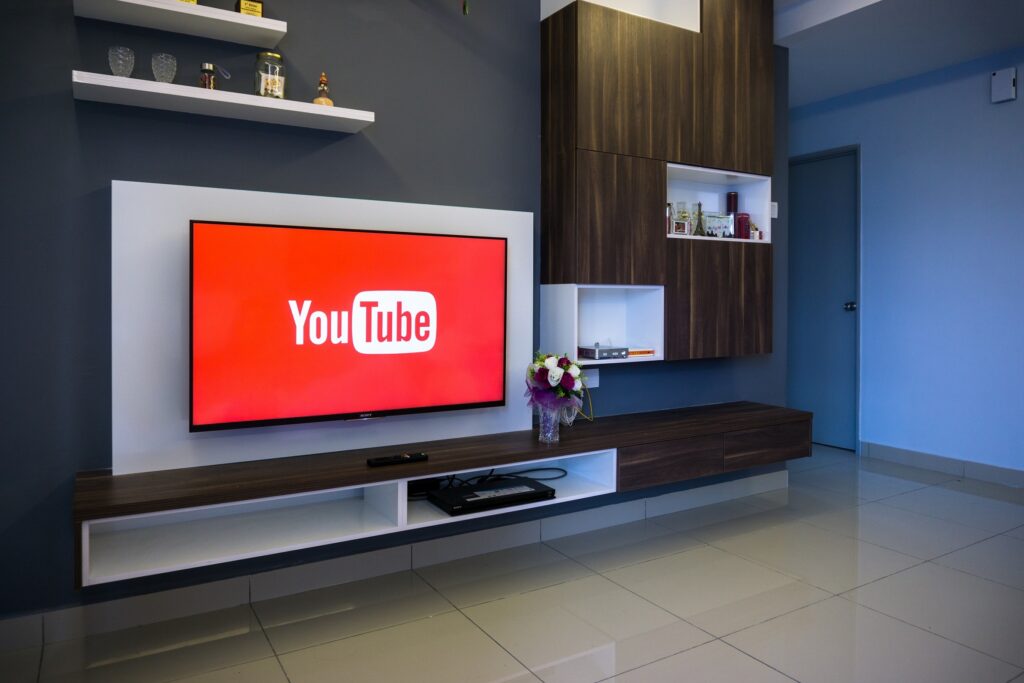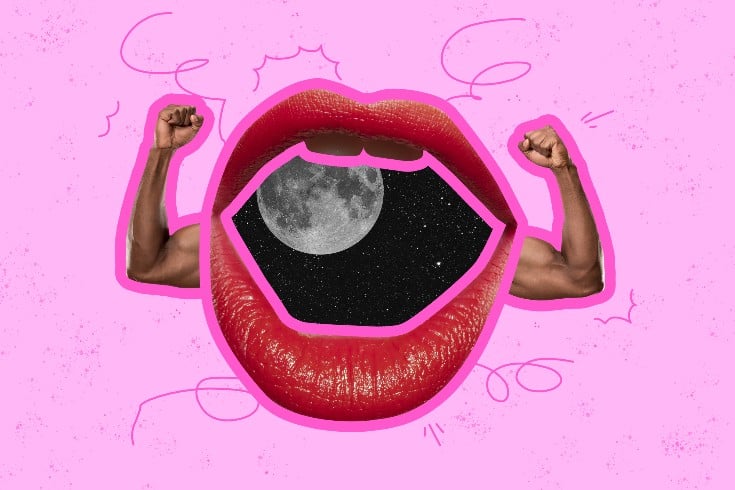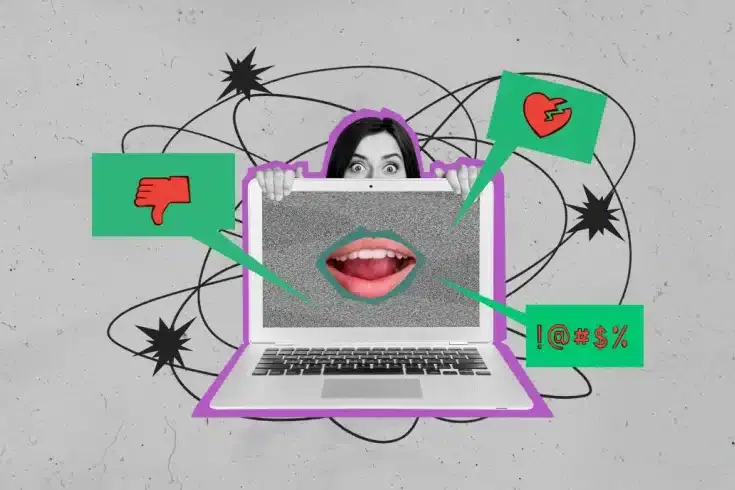Key Points for Outsourcing Contract Between YouTubers and Client Companies for Advertising Projects

YouTube has gained worldwide popularity as a video sharing site where anyone can easily post videos. Anyone can become a YouTuber by opening an account on YouTube, but popular YouTubers with a large number of channel subscribers have influence comparable to famous celebrities. Companies have noticed the influence of these popular YouTubers and sometimes ask them to create and distribute videos to promote their products or services. In particular, review videos in which YouTubers actually use the product and share their impressions are said to be more likely to lead to purchases because they are longer than TV commercials and provide detailed explanations about the product in a good tempo, making them popular with viewers.
When a YouTuber is commissioned by a client company to create and distribute videos for advertising purposes, they enter into a service contract. In this article, we will explain the important points of this service contract.
What is the Contract between a YouTuber and a Client Company?

The Purpose of the Contract between YouTubers and Client Companies
The contract that YouTubers sign with client companies, as explained at the beginning, is for the purpose of the client company commissioning the YouTuber to create and distribute videos to promote their products or services. If the YouTuber is not affiliated with a management agency, it is necessary for the YouTuber themselves to enter into a contract with the client company. Therefore, it is important to understand the key points of the contract and points to note in negotiations. On the other hand, if the YouTuber is affiliated with a management agency, the contract for advertising projects from client companies will be concluded between the management agency and the client company. Even so, it is necessary to know under what general conditions contracts are made for the projects you are undertaking. For more information on the contract when a YouTuber joins a management agency, please refer to the articles below.
The Legal Nature of Contracts between YouTubers and Client Companies
Contracts signed between YouTubers and client companies in Japan are often classified as business outsourcing contracts. A business outsourcing contract is interpreted as a combination of quasi-mandate and contract-for-work agreements. The notion of a quasi-mandate contract means that the YouTuber, acting as the contractor, carries out the tasks defined by the client company without guaranteeing the outcome, such as the delivery of the finished product.
However, when a YouTuber accepts an advertising project from a client company, naturally, the expectation is to create and distribute the video as agreed upon in the contract. Since a specific outcome is usually anticipated in this regard, contracts where YouTubers accept advertising projects from client companies not only possess the nature of a quasi-mandate contract but also include the characteristics of a contract-for-work agreement where the contractor guarantees the realization of the result.
Key Points of Contracts between YouTubers and Client Companies

What are the contract clauses and negotiation points that YouTubers should be aware of when entering into a contract with a client company?
Let’s look at the contract clauses and negotiation points that YouTubers should be aware of when accepting an advertising project and entering into a contract with a client company. In the following examples of clauses, “Party A” refers to the client company and “Party B” refers to the YouTuber.
Provisions Regarding the Scope of Work
Article ○ (Scope of Work)
The Party A entrusts to Party B the task of introducing Party A’s products specified in the appendix in a video produced and starred by Party B (hereinafter referred to as “the Work”), and distributing the said video on the YouTube channel operated by Party B. Party B accepts this commission.
Typical advertising projects from client companies, as exemplified in the above clause, involve the production and distribution of videos introducing their own products or services. Specifically, YouTubers create promotional videos for products, services, etc., specified by the client company, and upload and publish these videos on the YouTube channel they operate. In addition to this, there are PPL (Product Placement) advertisements related to video production. PPL is an indirect advertising method where the client company’s products are featured as props in a regular video, not for advertising purposes. If the YouTuber is famous, there are fans who will identify and purchase the same product just by saying, “YouTuber ○○ uses this desk in their makeup video.” Therefore, there is a certain demand for PPL advertising projects that feature client company’s products as props. Furthermore, advertising projects from companies are not limited to video production and distribution. The following tasks may also be requested from YouTubers. These tasks may be requested in conjunction with video production and distribution.
- Appearing as a host or guest at an event specified by the client company
- Being interviewed by a media outlet specified by the client company
- Promotion on the SNS operated by the YouTuber
Advertising projects from client companies can be contracted on a one-time basis or on a continuous basis. In the case of continuous contracts, there may be cases where a certain distribution period is set, such as distributing one video per month, or cases where only the number of videos to be distributed is set without specifying the distribution period. In such cases, when continuously contracting advertising projects, the following clause can be used to stipulate that the specific scope of work will be determined in individual contracts.
Article ○ (Scope of Work)
The Party A entrusts to Party B the task of introducing Party A’s products as stipulated in a separate individual contract in a video produced and starred by Party B (hereinafter referred to as “the Work”), and distributing the said video on the YouTube channel operated by Party B. Party B accepts this commission.
An individual contract does not need to be in the form of a formal contract. It can be established through order forms, request forms, or email exchanges.
Clause on Remuneration
Article X (Remuneration)
The Party A shall pay to the Party B an amount calculated by multiplying XX yen (excluding consumption tax) by the number of subscribers to the channel operated by the Party B at the time of this contract’s conclusion, as consideration for the services under this contract.
There are two types of remuneration calculation methods for advertising projects from client companies: a flat-rate method and a performance-based remuneration method. A common method of calculating remuneration in the flat-rate method is to multiply a unit price by the number of subscribers to a YouTuber’s channel at a certain point in time. The clause example above is for when this calculation method is adopted. Another method in the flat-rate system is to multiply a unit price by the average number of views of videos published on a YouTuber’s channel. The unit price varies depending on the project, but it is often around 1 yen. When using such a calculation method, it is also important to clearly define at what point in time the number of channel subscribers will be used as a basis. The performance-based remuneration method is one where remuneration is paid to the YouTuber when a certain achievement is reached, such as when a person who has watched the YouTuber’s published video clicks on the URL listed in the video’s description section and downloads the advertised app. When adopting such a performance-based remuneration method, it is important to clearly define in the contract clause the achievement point that will be the requirement for remuneration to occur. Specifically, it is necessary to check whether achievements not made via the URL in the description section are included in the remuneration, or whether cancellations immediately after download or purchase are included in the achievements.
Clause on Video Publication Guarantee

Article ○ (Publication Guarantee)
1. The Party B shall continuously publish the video created based on this business for 6 months from the publication date.
2. Even after the period in the preceding paragraph, Party B shall strive to continue publishing the video, but shall not bear any responsibility for the publication of the video.
The video that the client company requests the YouTuber to create is ultimately published on the channel managed by the YouTuber. Therefore, it is common for the client company to not only request the creation of the video, but also to guarantee the publication of the video on the YouTuber’s managed channel for a certain continuous period. For the client company, the video has meaning only when it is published, so such a video publication guarantee clause is something that the YouTuber side must accept. However, it cannot be definitively said that the YouTuber side will continue to hold the YouTube channel forever. For example, there is a possibility that they may end their activities as a YouTuber by switching to a talent or other profession. In preparation for such cases, it is necessary for the YouTuber side to specify the period for which they guarantee the publication of the video, as in the clause example above.
Force Majeure Clause
Article ○ (Force Majeure)
If one party to this contract is delayed or unable to fulfill its obligations under this contract or individual contracts due to the circumstances specified in the following items, it shall not be held responsible.
(1) Suspension or termination of services related to YouTube and other outsourced services
(2) Suspension or termination of YouTuber’s account or channel in the said service
(3) Natural disasters, fires, and explosions
(4) Epidemics
(5) War and civil unrest
(6) Revolution and national division
(7) Orders and dispositions by public authorities
(8) Riots
(9) Other situations equivalent to the preceding items
It is necessary to stipulate a clause that exempts YouTubers from liability in the event that they are unable to perform tasks such as video production due to a force majeure situation. To begin with, the force majeure clause is a general clause that is commonly stipulated not only in the service contract that YouTubers sign with client companies but also in general. Normally, natural disasters, fires and explosions, epidemics, wars and civil unrest, revolutions and national divisions, orders and dispositions by public authorities, riots, etc. are stipulated in the contract as force majeure that are subject to exemption. In the contract that YouTubers sign with client companies, in addition to these general force majeure clauses, we recommend that you clearly state that the termination of YouTube’s own service provision and account suspension are also exempted. Video production and distribution for client projects depend on the YouTube platform. Therefore, if YouTube itself is closed or becomes unusable, the tasks that YouTubers have accepted from client companies will become impossible to perform.
Furthermore, there is a higher possibility of YouTuber’s account suspension. If a viewer files a complaint with YouTube claiming that the video being broadcast by the YouTuber infringes on someone else’s rights, depending on YouTube’s review, the YouTuber’s account itself may be suspended. In such a case, naturally, the YouTuber will not be able to distribute the video produced for the client company, resulting in a breach of contract. Account suspensions actually occur occasionally, even for famous YouTubers. Therefore, as a YouTuber, you would want to ask the client company to add account suspension or termination to the force majeure clause as much as possible.
Clause on Maintaining Client’s Image
Article X (Prohibited Matters)
The Party B shall not engage in the following matters:
(1) Actions or statements that damage the image of Party A and/or third parties designated by Party A, their businesses, products, or services
(2) Criminal acts, acts against public order and morals, or acts that challenge the social order
(3) Acts that significantly damage the reputation or credit of Party A or its business partners, etc.
When a YouTuber receives a project from a client company, the YouTuber’s actions and image can affect the company’s products and services. However, unlike celebrities, YouTubers are not necessarily required to maintain a squeaky-clean image, and they currently do not need to be as cautious about their private lives as celebrities. Nevertheless, it is obviously unacceptable for a YouTuber, who has been commissioned by a client company to create a promotional video for its products, to post derogatory comments about the company or its products on an anonymous account of a social networking service (SNS) they use privately. This is because even if the account is anonymous, it is possible for viewers to identify the account holder. In addition to this, actions that clearly damage the image of the client company or its products, etc., are typically prohibited in contracts, as shown in the above clause example.
Summary: YouTubers should Consult Lawyers in entering Contracts for Large Corporates’ Advertising Projects
As YouTube viewer population is increasing, it is expected that YouTubers will continue to have more opportunities to be approached by client companies for advertising projects. Especially for YouTubers who operate independently without belonging to a management agency, there is a risk of entering into contracts under disadvantageous conditions due to unfamiliarity with contracts with large corporations. Moreover, there are many contract clauses unique to YouTubers, so it is reassuring to consult with a lawyer experienced in legal matters related to YouTubers when accepting advertising projects from client companies.
Category: Internet





















